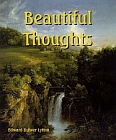
Martyrs of Science

Description
Martyrs of Science
The Lives
of
Galileo, Tycho Brahe, & Kepler.
by
Sir David Brewster
The great men of knowledge sacrificed on the altar of ridicule by the Christian Church and its illiterate leaders.
Excerpt:
Chapter I.
Peculiar interest attached to his Life-His Birth-His early studies-His passion for Mathematics-His work on the Hydrostatic Balance-Appointed Lecturer on Mathematics at Pisa-His antipathy to the Philosophy of Aristotle-His contentions with the Aristotelians-Chosen professor of Mathematics in Padua-Adopts the Copernican system, but still teaches the Ptolemaic doctrine-His alarming illness-He observes the new Star in 1604-His magnetical experiments.
The history of the life and labours of Galileo is pregnant with a peculiar interest to the general reader, as well as to the philosopher. His brilliant discoveries, the man of science regards as his peculiar property; the means by which they were made, and the development of his intellectual character, belong to the logician and to the philosopher; but the triumphs and the reverses of his eventful life must be claimed for our common nature, as a source of more than ordinary instruction.
The lengthened career which Providence assigned to Galileo was filled up throughout its rugged outline with events even of dramatic interest. But though it was emblazoned with achievements of transcendent magnitude, yet his noblest discoveries were the derision of his contemporaries, and were even denounced as crimes which merited the vengeance of Heaven. Though he was the idol of his friends, and the favoured companion of princes, yet he afterwards became the victim of persecution, and spent some of his last hours within the walls of a prison; and though the Almighty granted him, as it were, a new sight to descry unknown worlds in the obscurity of space, yet the eyes which were allowed to witness such wonders, were themselves doomed to be closed in darkness.
Such were the lights and shadows in which history delineates
"The starry Galileo with his woes."
But, however powerful be their contrasts, they are not unusual in their proportions. The balance which has been struck between his days of good and evil, is that which regulates the lot of man, whether we study it in the despotic sway of the autocrat, in the peaceful inquiries of the philosopher, or in the humbler toils of ordinary life.
**************
185+ pages - 5½ x 8¼ softcover
















